I Had One Of The Biggest Hits Of 1992. Then I Came Out As Omnisexual.
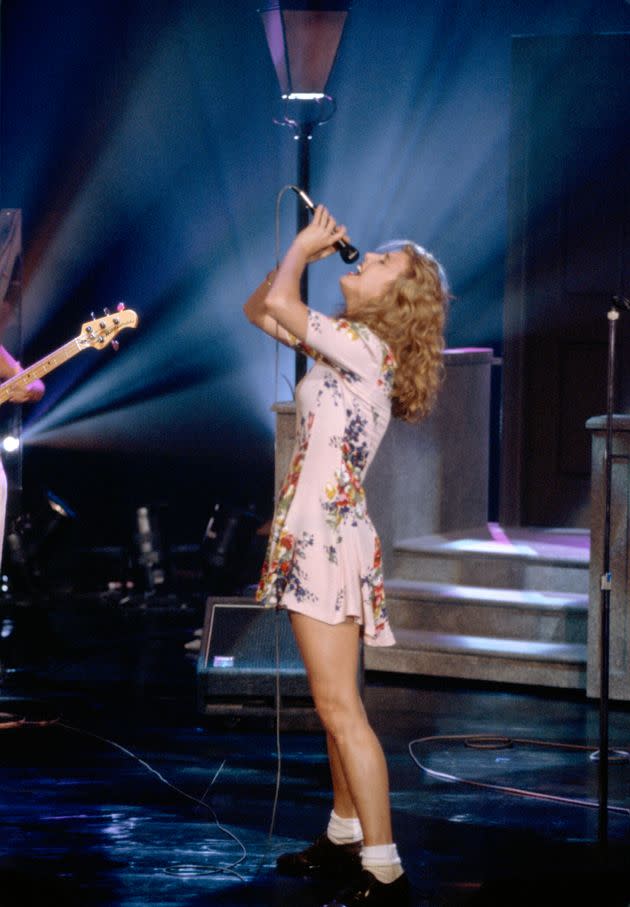
I want to free myself. That’s the story of why I’m still here, a mother of two, about to release my new album, "Free Myself," and go on tour.
I’ve gone from growing up like Huck Finn in Central Park to studying African drums and getting into Manhattan School of Music for percussion; from singing my songs from behind my drum set to getting hired and fired by Bryan Ferry; from being courted by the top record labels of 1989 with demos I’d recorded in my bedroom to releasing a now-classic album in 1992; from leaving Sony in 1998 and releasing five albums on my own label to sitting here, about to tell you what matters to me now about my career in the ’90s — a journey to create on my own terms and defy classification.
Let me take you to a diner in the West Village of Manhattan. It’s the spring of 1992. I’m just beginning to do interviews for “Tongues and Tails,” all the songs of which I had first recorded on an eight-track reel-to-reel in a cab driver’s East Village apartment while he drove the graveyard shift. The album came to life at Electric Lady Studios with my hand-picked musicians: Omar Hakim, Mark Egan, Eric Bazilian and Rob Hyman.
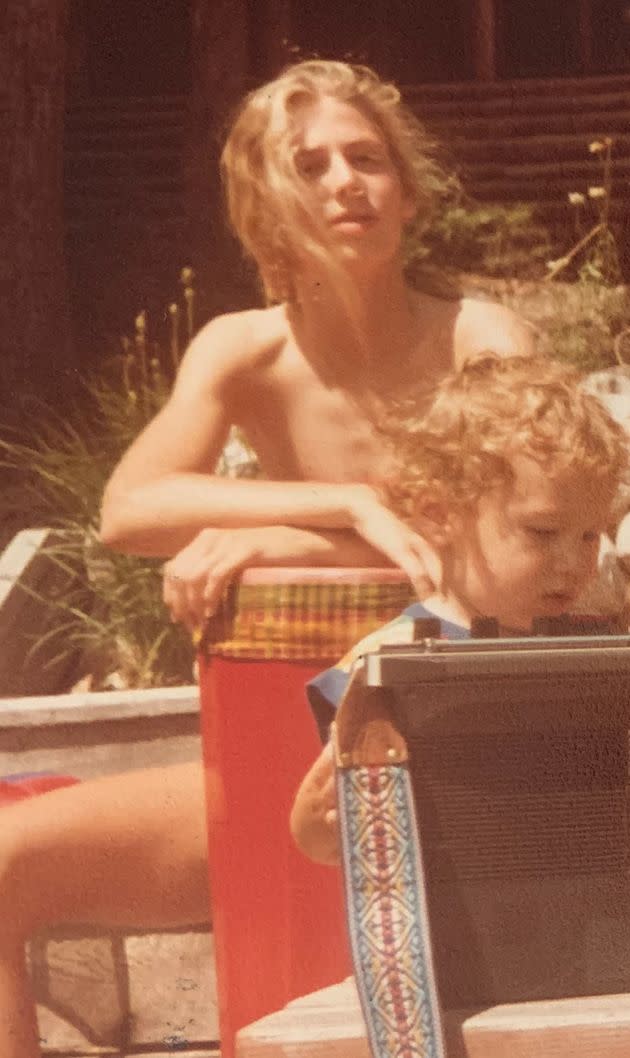
All my years of dogged determination to become a musician and songwriter were suddenly intersecting with the promise of commercial support. I was cool about it — on the outside. For two years the label had been scrutinizing each day’s work, and each morning I’d expected the plug to be pulled, but this morning I was scheduled for a “very important interview” with The New York Times.
I’m sitting with its esteemed music writer, Jon Pareles. He’s drinking coffee; I’m sipping hot water. He’s asking me about the process of birthing my hit song, now climbing the charts, “Damn I Wish I Was Your Lover.” I’m thinking back to that summer afternoon in my sweltering bedroom, the tones of my cheap upright clinking like ice cubes in a dirty glass. “Damn” came to life after weeks of skipping across the piano keys and wearing out my voice to find that sound so new and familiar at once.
He interlaces his fingers like a dome above his cup. “Are you a lesbian?” he asks as his tape recorder chugs imperiously next to his elbow. My past, my present and my future selves wait for me to speak, to represent them truthfully, and yet with art, because art is the essence of all I do, all I am, all I stand for.
He is referring to the third verse of “Damn,” in which I sing, “I sat on the mountainside with peace of mind / and I lay by the ocean making love to her with visions clear / walked for days with no one near / and I return as chained and bound to you / Damn, I wish I was your lover.”
The journalist discreetly sips his coffee as he neatly tucks me into the labyrinth of art and commerce. The lyrics of “Damn” are unequivocal ― all of my lyrics are. It’s a pop rock song on the radio, but the source of my creations is not for sale. I work with the dedication of any true artist: alone, with all of my being, for a result that is potentially timeless and classic. This question ― “Are you a lesbian?” ― feels like a trap, although I realize it’s important in the context of 1992, and queer history. In fact, my truthful answer feels important to the total evolution of our species, because without freedom of expression and the right for every human to be who they are and be loved for who they are, we are doomed to fail.
Am I doomed to fail in my career if I’m truthful?
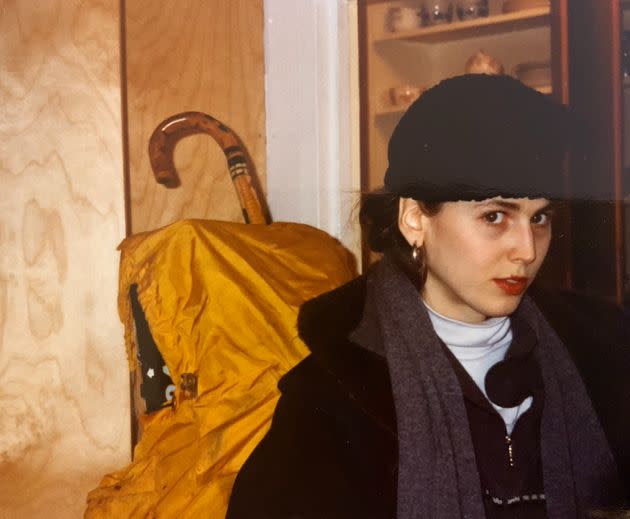
Well, maybe. But being an artist is about being truthful. Using your creative process to get to your own truth is the quest. Virginia Woolf stirred this journey within me when I read “To the Lighthouse” on a rock in Riverside Park at 13. If that book were the ocean, I was drawn in by the light on the waves, curious to touch the depths and cautious of the emotional currents.
Woolf and David Bowie, my other inspiration, express their humanity without conforming to its bounds. Without their work, would I have had the courage to create my own stories with music and lyrics? “Don’t Stop Swaying,” “We Are One Body,” “Damn I Wish I Was Your Lover” ― my album “Tongues and Tails”is stories within stories. It’s my hidden, private history revealed in poems, often so clear to the listener, yet mysterious to me.
I listen to the shuffling of city sounds outside on the street, and the rhythm of spoons and saucers by our cozy banquette. Then, between my ears, I hear my teenage voice telling my boyfriend, “Just because you’re male doesn’t make me straight.” I had seen the film “The Last Metro”and no way was I going to deny my attraction to Catherine Deneuve. I suspected there was a wealth of emotion a female could unlock. Yet that awareness didn’t diminish the experience of love I was having with him. It’s not about gender, I thought then. The body is a vessel carrying the soul, the life stories, the spirit of a person, and sometimes the body parts are not what you thought they should be. And sometimes they are just what you ordered.
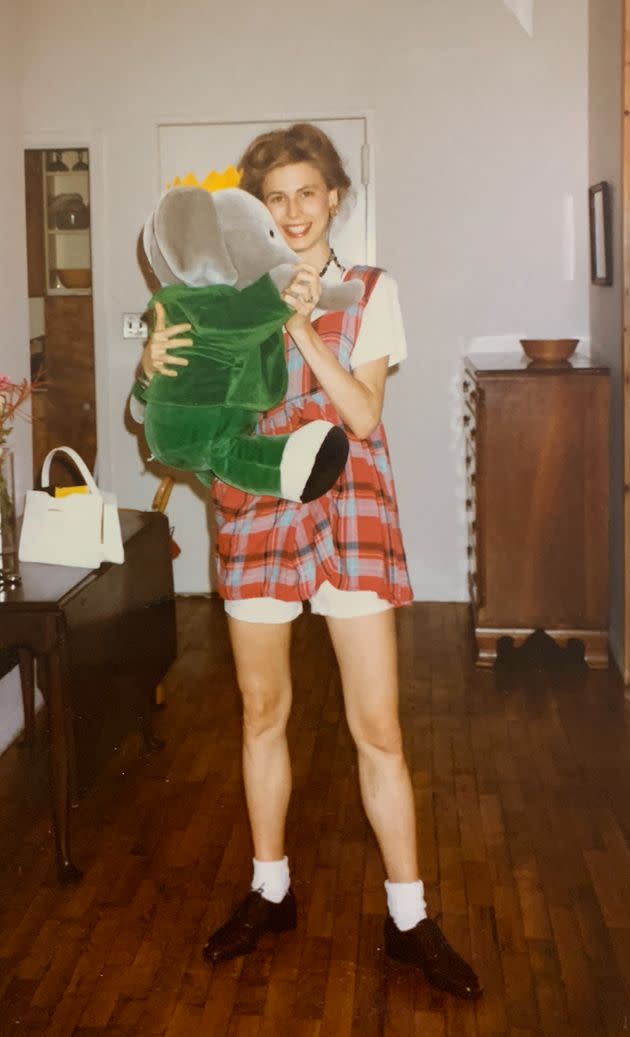
“I’m omnisexual,” I blurt out to Pareles.
“What is that?” he asks.
“My gender doesn’t define my sexuality,” I say. “My creative spirit does. A male partner doesn’t make me straight, nor does a female partner make me gay. ‘I am everything,’ omni is all, and one.”
Sony Music was not pleased. They were giving me a huge push, and they thought coming out as omnisexual would kill my career. I went on to become a vocal supporter of LGBTQ rights. I spoke freely about the gender spectrum on the morning shows as jaws dropped in the radio broadcast rooms. I was just 30 years too early.
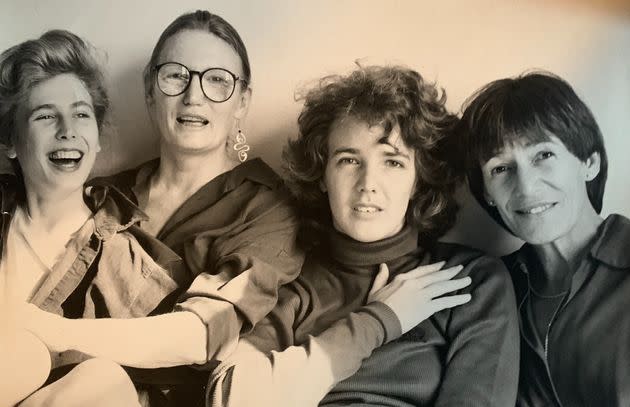
In today’s music industry, my boldness and spontaneous honesty fit, and I’m happy about that. Back in 1996, when I dropped to my knees and sang the third verse of “Damn” to Melissa Etheridge on her VH1 Duets special, banging on my African drum for the finale of Joan Armatrading’s “Love and Affection,” I didn’t quite belong. Brandi Carlile, Sam Smith and “living angel” Kim Petras (as Shania Twain lovingly called her in a recent interview with GLAAD) are among the many artists who represent the distance humanity has traveled in applauding people for all of who they are, and also prove that the music industry is relevant and cutting edge.
Well, the music industry serves the audience after all, and back in the ’90s I loved rolling off the tour bus and meeting my new fans who were a lot like me ― a sweet bundle of emotions not wanting to be categorized but rather to grow like individual flowers in their own special way.
We didn’t have social media or even the internet; we had eye contact and speaking and hugging. We also owned the as-yet-unappreciated luxury of space, time and privacy. Now kids can reap the benefits of creating an image and getting it out there fast, but the consequences of criticism, judgment and exploitation are dire.
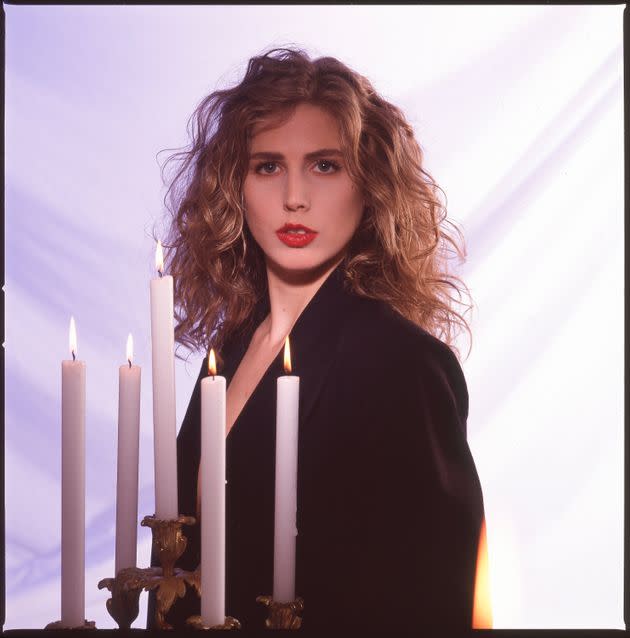
Was my bold stance also a response to being objectified as a sexy, young female, now that I was contractually bound to promote my work in the media? Was I also identifying with the shame of always being defined by others? I wasn’t emotionally prepared for all that was hitting me ― and all that was coming out of me. The struggle to self-identify is centuries old, and every person who punches against the muffling darkness is carrying the torch of enlightenment. In response to demeaning cat calls, singer-songwriter Maggie Rogers used her platform to say, “We create a safe space to amplify each other ... there is no space for harassment, or disrespect or degradation.” As I am about to tour, I am bolstered by her courage and compassion toward herself ― and all of us.
Being a mother has reinforced my sense that each human is potentially a universe, discoverable mostly by themselves. Yet in life, we share in the consciousness-raising business. I recently spoke with my 85-year-old friend who reminded me of Judy Chicago’s ’70s installation “The Dinner Party.”It has inspired countless works of art, and central to the theme, for me, is to honor those who have listened to their own truth and stood against all odds to express it. Speak your truth, don’t squander the inspiration — perhaps you’ll be granted a seat at the table.
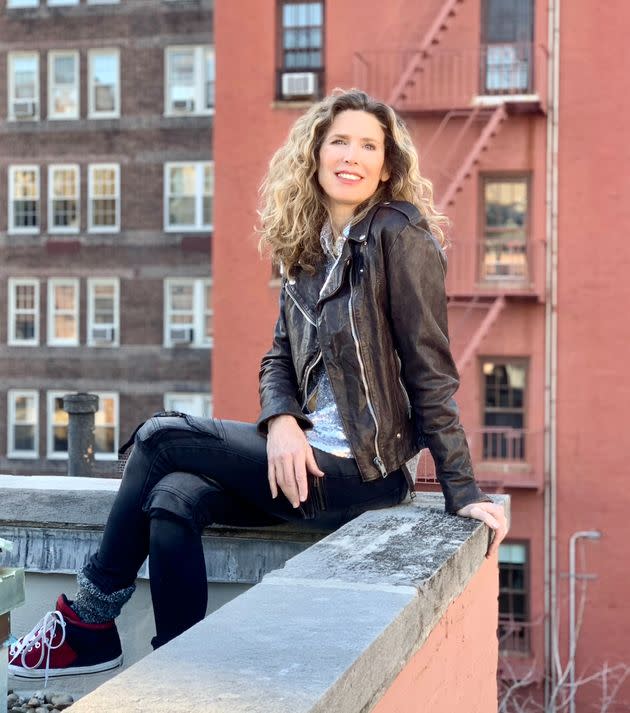
I go back to that moment in the diner with that writer who asked a challenging question and I thought, How will my answer impact my life? How can I help humanity the way I want to help myself?
It is possible to free yourself, to love yourself, to be a whole and happy person. This is what my new album is about. That’s why it’s called, of course, “Free Myself.”
Grammy-nominated, platinum-selling artist and prolific songwriter Sophie B. Hawkins just released her seventh studio album, “Free Myself,” on March 24 via Lightyear Entertainment. Sophie will be celebrating the release of the album with a series of intimate album release shows on the East Coast with stops in New York City, Philadelphia, Washington, D.C., and more. It’s an exciting new creative chapter for the legendary artist whose indelible hit songs such as “Damn I Wish I Was Your Lover” and “As I Lay Me Down” have been featured in cultural touchstone TV shows and films (from recent hits “Stranger Things,” “Euphoria,” “Ozark,” and “PEN15,” to landmark series “Beverly Hills, 90210,” “Dawson’s Creek,” “The L Word” and more) and who has always been ahead of her time with her steadfast activism supporting such causes as environmental protection, animal rights and LGBTQ equality; using her songwriting and platform for positive change with the forward-thinking, pioneering outlook she has championed all along. Sophie’s ever-evolving career has also included releasing six widely beloved albums, breaking chart records with her smash hits, four worldwide singles from “Whaler” and a starring role as Janis Joplin in the critically acclaimed musical “Room105.” A dynamic creative force, Sophie has always been fully involved in every aspect of the production of her records, from background vocals and playing her own instruments as a multi-instrumentalist, to engineering and production of her albums. She has proved to be an enduring artist with a fierce commitment to artistic integrity while both constantly evolving and remaining steadfastly true to her own authentic history and experience, which connects her to her fans at the very deepest levels. For more information, please visit sophiebhawkins.com.
Do you have a compelling personal story you’d like to see published on HuffPost? Find out what we’re looking for here and send us a pitch.

 Yahoo News
Yahoo News 